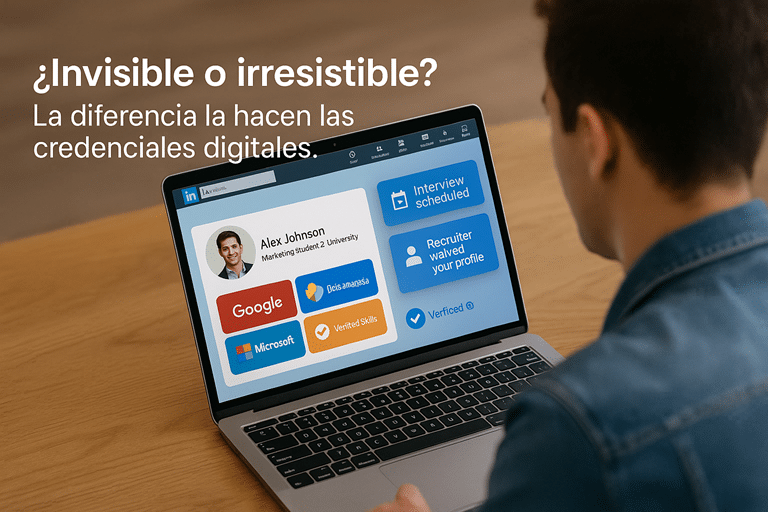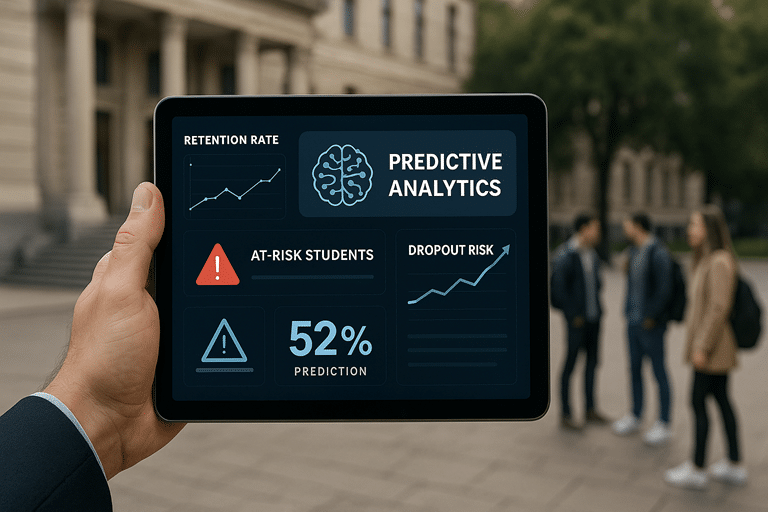Blockchain technology has revolutionized the way we interact and share information online. At the same time, digital credentials have become a valuable tool for recognizing achievements and skills in various fields. What happens when we combine these two innovations? In this article, we will explore the relationship between digital credentials and blockchain, and how this combination is transforming the way we certify and validate knowledge and competencies.
What are digital credentials?
The digital credentials are visual representations of achievements, skills or competencies awarded to individuals online. They function as a type of digital certification that demonstrates the acquisition of certain skills or the fulfillment of certain criteria. These credentials can be issued by educational organizations, companies, or online learning platforms.
Use and applications of digital credentials
Digital credentials are used in various areas, such as education, vocational training and the workplace. They provide a more flexible and accessible form of recognition than traditional paper diplomas or certificates. Additionally, they can be easily shared on digital platforms and social networks, increasing the visibility of individual achievements.
What is the blockchain?
Blockchain is a distributed ledger technology that records transactions securely and transparently. It is based on a decentralized network of computers that work together to validate and verify each transaction. Each block contains transaction data and a timestamp, and is linked to the previous block, thus forming an immutable chain of records.
Main characteristics of the blockchain
- Safety: The blockchain uses advanced cryptography to protect data and ensure the integrity of stored information.
- Transparency: All transactions on the blockchain are visible to all network participants, promoting trust and accountability.
- Decentralization: There is no central authority that controls the blockchain, making it resistant to manipulation and censorship.
The relationship between digital credentials and the blockchain
The integration of digital credentials into the blockchain offers an innovative solution to validate and authenticate individual achievements. When a digital credential is recorded on the blockchain, it becomes verifiable and immutable proof of the completion of certain tasks or the acquisition of knowledge.
When a person obtains a digital credential, this information is recorded in the form of a transaction on the blockchain. Each transaction is linked to a unique identifier and the identity of the individual who received the badge. Information about the badge, such as the description of the competition or achievement, is also stored in the block.

Blockchain is not the same as cryptocurrency, but is a broad technology that enables trust between peers through decentralized algorithms and ledgers.
Advantages of using blockchain for digital credentials
The combination of digital credentials and blockchain offers several advantages:
- Authenticity: The digital credentials registered in the blockchain are immutable and cannot be modified or falsified, which guarantees their authenticity.
- Portability: Digital credential holders can easily share their achievements across different platforms, facilitating portability and recognition.
- Reliable validation: Employers, educational institutions, and other entities can reliably verify the authenticity of digital credentials through the blockchain.
It might interest you: Why hire Acreditta instead of building your own development
Use cases for digital credentials with blockchain
The combination of digital credentials and blockchain has applications in various fields:
- Education and certifications: In the educational field, institutions can issue digital credentials to certify the completion of courses, projects or academic achievements. These badges are stored on the blockchain, allowing students to share their achievements with future employers or academic institutions in a secure and verifiable way.
- Digital identity and reputation management: Digital credentials can be used to build a person’s digital identity, displaying their skills and achievements in a transparent and verifiable way. This is especially useful in the workplace, where employers can quickly assess a candidate’s capabilities.
- Applications in the workplace: In the world of work, digital credentials can be used to certify specific skills relevant to a job. This helps employers quickly identify the most suitable candidates for a given position.
- Benefits and challenges: The combination of digital credentials and blockchain offers significant benefits, such as greater transparency and trust in the validation of achievements. However, it also presents challenges that must be addressed, such as the standardization of credential formats and the active participation of relevant actors.
What future awaits digital credentials on the blockchain?
The future of digital credentials on the blockchain is promising. With the advancement of blockchain technology and greater adoption of digital credentials, we are likely to see deeper integration in various areas, from education to job recruitment.
Digital credentials and blockchain are closely related and offer an innovative way to certify achievements and skills in a secure and verifiable way. This combination has the potential to transform the way we recognize and validate individual talent in the digital world.
Subscribe to blog here and receive all our content







